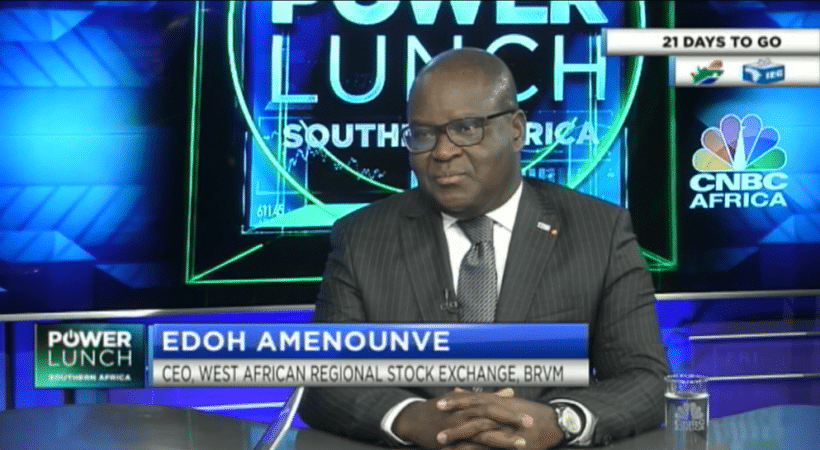
Cote d’Ivoire expects to launch a commodities exchange later this year, seeking to provide a marketplace for soft commodities key for the development of West Africa’s farming sector.
The exchange, to be based in Abidjan Cote d’Ivoire’s commercial capital, will initially trade kola nuts, cashew nuts and corn (maize), Edoh Amenounve, the CEO of the West African Regional Stock Exchange (BRVM), told CNBC Africa in an interview. Cocoa, the region’s dominant crop, will be added later, he said.
“We hope that we will start this year,” said Amenounve, who is pitching the BRVM and the commodities exchange to South African investors. “We are just trying to have all the operational tools in place in terms of informational system. If all these are ready, we will start this commodity exchange.”
Cote d’Ivoire is one Africa’s fastest growing economies, with 2024 growth forecast at 6.5 percent before moderating to 6.4 percent the following year, according to the International Monetary Fund. The country is the world’s largest exporter of cocoa with agriculture the mainstay of the economy at about 22 percent of gross domestic product.
Amenounve said apart from pitching the commodity exchange, he was also canvassing support for investment on the BRVM, the 8-member regional stock exchange which is the fifth largest on the continent. The JSE is Africa’s largest and oldest exchange. Growth is picking up across the region in spite of political instability in some countries, he said.
“Côte d’Ivoire is the lead in our region and the economic growth in Côte d’Ivoire is an average 7% during the last 10 years. And for the entire region, we are something in the region of about 6% GDP growth,” he said. “We have oil and gas now in Côte d’Ivoire, in Senegal, in Niger. We have mining in Burkina Faso, in Mali. We think that the fundamentals are very strong and the investors can continue to invest in the West African region.”
He said South African investors currently own about 5 percent of the BRVM, a figure he wants to grow given the region’s expanding economies. While the JSE was a competitor for now and a clear leader, the future lay in African stock exchanges collaborating through the African Securities Exchanges Association, Amenounve said.
Investors can “access the 2,000 listed companies on all the exchanges in Africa so you can compare the performance of all these companies,” he said. “That is very important for me, I think we have done for the integration.”
“Yes, we started already in West Africa and what is important to know is that the integration of the capital markets in Africa is key for the development of our continent. We cannot stay small, small, small stock exchanges compared to the JSE and pretend to have the performance that we have in Asia or in Europe or in America. It is important that we talk together.”

